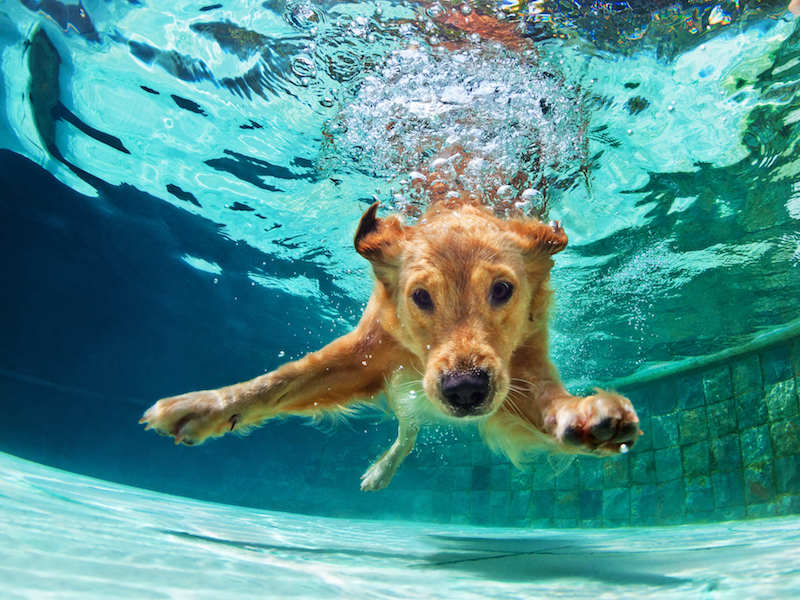
There are a lot of different things that can damage the delicate that makes a hearing aid function the way it does, but few have the impact of water. In fact, you could call moisture kryptonite for hearing aids. Even if you already know that and take care to protect your investment from the shower, pool, or a good face washing, more than likely you are missing the most common cause of water damage in hearing aids: humidity.
Invisible moisture has the highest chance of causing permanent damage. It’s time to learn more about why humidity is a negative thing for hearing aids.
What is Humidity?
Even though the word humidity is very common, what does it really mean? PBS describes humidity as water molecules in the air. When displayed as a percentage, for example, the relative humidity is 40 percent today, it refers to the amount of water vapor in the air compared to what air could hold. The greater the percentage, the wetter everything feels.
People are very sensitive to humidity because sweat is the most efficient way to cool down the body. When humidity levels are too high our sweat will not evaporate as fast. Moisture and electronics don’t mix well and that includes hearing aids.
Why Electronics Have difficulty with Humid Weather
Strangely enough, electronics are not just sensitive to high humidity but low levels as well. When water vapor percentages are high condensation can accumulate on the intricate elements that make electronics function, and low humidity can cause brittle core materials.
Hearing aids rely heavily on internal electronics to function. A sophisticated signal processing chip controls noise levels in a modern hearing aid. Because of this, you get awesome features like:
- Noise reduction
- Anti-feedback
- Targeted listening programs
- Digital sound streaming
Moisture can collect in the hearing aid when humidity is high and damage that component. Batteries get destroyed and you get corrosion of elements inside of the case. You might as well throw your hearing aid in a pool full of water, and the effect is the same.
Keeping Humidity Under Control
If you are looking at hearing aids, look for products that are water-resistant. Having this feature doesn’t mean you can swim with your hearing aids in place, but it does provide some protection from humidity and other weather-related concerns such as getting caught in an unforeseen rainstorm or even sweat when you work out.
When it’s very humid try to cut down on indoor water vapor by utilizing a dehumidifier. It’s not just your hearing aid that will benefit, there are health benefits, and other electronics in the home will also be protected. Dust mites, mildew, and mold thrive in moist environments so a dehumidifier will improve the quality of breathing as well. However, protecting your hearing aid more completely will require additional thinking. There are a few other things you can and should do.
Look for the dehumidifier made for hearing aids. There is one out there for every budget. Drying kits rely on silica gel crystals to protect the electronics. Moisture is eliminated by putting the hearing aids into the dehumidifier for a couple of hours. There are also storage containers that dry hearing aids out each night as you sleep. If it is very humid and you have no other way, uncooked rice can reduce moisture.
Get in the habit of opening the battery compartment every time you store your hearing aids. By pulling that door open before you put the hearing aid down, you expose the batteries and other elements to the air, allowing any condensation built up to evaporate naturally. Don’t just do this in the summer, do it all year round.
A cool dry place is the ideal for storage. On the table in the sun, in the glove compartment, or in a hot room are examples of where not to store your hearing aids.
Thinking Beyond Humidity
Damage can be caused by other types of wetness. Take precautions to protect them from other kinds of wet such as:
- Don’t touch your hearing aids with hands that are still moist from lotion.
- Leave your hearing aids in a safe place before you go swimming.
- Wear a sweatband when exercising. It’s a good practice whether you wear your hearing aids when you workout or not. Sweat in your ears can cause problems later.
- Try not to put your hearing aid down on wet surfaces. You don’t want to place it in a wet spot left by a glass or coffee cup.
Treat your hearing like the valuable asset that it is. Consider how moisture and humidity can impact them and take steps to prevent water damage. If your hearing aid already has water damage make an appointment for service with a hearing aid specialist.